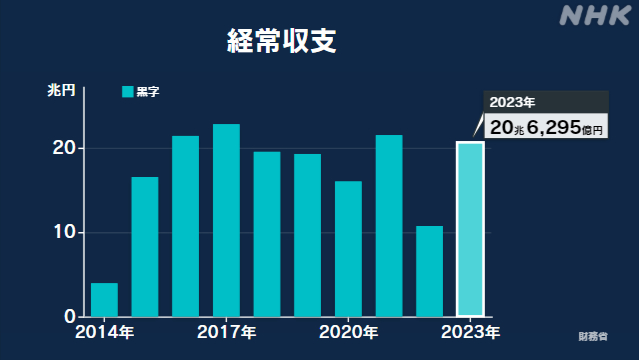The current account balance, which shows how much money Japan earns from overseas trade and investment, had a surplus of over 20 trillion yen last year, and the surplus was due to the soaring energy prices coming to an end and the amount of imports decreasing. The amount has nearly doubled from the previous year.
According to balance of payments statistics released by the Ministry of Finance, Japan's current account balance for last year was in surplus at 20,629.5 billion yen, an increase of 9,915.1 billion yen from the previous year.
Of this amount, the trade balance, which shows earnings from trade, was in the red at 6,629 billion yen, but the deficit was reduced by more than 9 trillion yen from the previous year.
This was due to factors such as the soaring prices of energy such as crude oil coming to a halt and imports decreasing, as well as the easing of semiconductor supply shortages and an increase in automobile exports.
On the other hand, the "primary income balance," which shows the earnings from dividends and interest received by Japanese companies from overseas subsidiaries, was 34,557.3 billion yen, which is higher than the previous year due to rising interest rates on overseas bonds. It increased by 95.2 billion yen, setting a record high.
Additionally, the current account balance for December last year, which was also announced, was a surplus of 744.3 billion yen, marking the 11th consecutive month of surplus.

